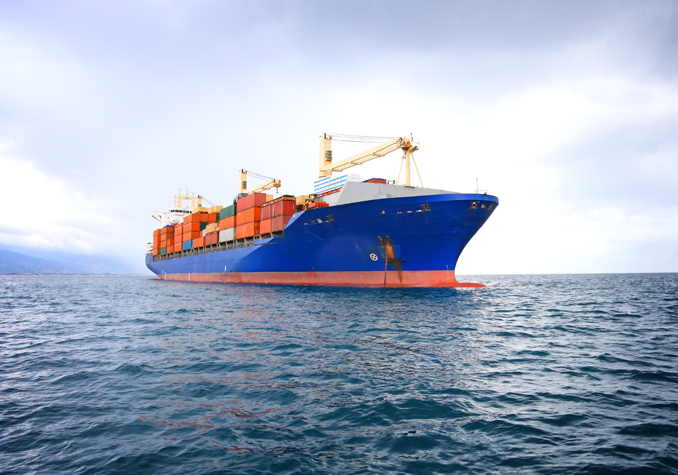John C Lyras declares three main Challenges for European Shipping
According to John C Lyras, chief of Paralos Maritime Corporation and a very renowned face in shipping since 1975, in order to endure presence on the global stage, European shipping industry should defy are Conventions, desulphurisation and shipbuilding.
Lyras belongs to a Greek nautical family with a tradition in shipping that goes back four cohorts. Lyras is vice chairman of the International Chamber of Shipping (ICS). He is the former president of Union of Greek Ship-owners and also the former president of European Community Ship-owners Association ECSA.
In addition, John is also one of the founder members of the Hellenic Marine Environment Protection Association.
Competitiveness- the secret of command and the only element for survival
Lyras points out that competitiveness is the only way to encounter the main challenges that the European shipping industry is confronting today. In a conversation with Maritime CEO, he said that competitiveness is the very feature which consents us to command 40% of world convoy.
The competitiveness of the convoy is determined very much on the taxation rule in shipping, the tonnage tax structure. He declares that the contemporary regime of taxation in Europe has to be maintained if we have to remain in Europe business and we are in a worldwide competitive situation.
If we want to uphold the sea cargo to Pakistan and other Asian states and USA, the taxation structure must be stabilized.
Regulation which is affecting the safety and Environment of Shipping Industry
One of the biggest trial for shipping companies today is regulation, which marks the industry in safety and in the environment, particularly decarbonisation and desulphurisation. According to Lyras the lack of visibility of accessible fuels come 2020 is annoying him.
Lyras says that for him it is intolerable that they do not know what goods the bunker suppliers are going to supply before the 2020 deadline. When this is not happening in other sectors then why it has been permitted to take place in our industry. It is not easier to fit 40,000 ships with scrubbers or a hundred processing plant. Then why the ships have been asked to disulphuric fuels.
The experienced Greek ship-owner says that the regulators have failed to hold the factual, opportune dialogue between all parties that are oil companies, ship-owners and shippers. Lyras maintains that the regulators should have made efforts to balance those benefits rather than w
orsen them.
The shipping industry has not got the technology obtainable to decrease emanations by 50% before 2050 with growing cargo trades and populations. Looking at the present markets, Lyras says he has never seen such diverged sectors where there’s one segment performing very well and another one very bad.
Insufficient manning- A safety problem for Maritime Industry
Insufficient manning is another frequent safety issue in the current maritime industry. Regardless of progressive technologies, a deficient number of crew members dealing with a rising possibility of tasks and duties may result in risk and threat prompted by human factor mainly fatigue especially in significant operations enduring 24 hours or more.
A weary or tired worker is less fruitful and is more inclined to mishaps and injuries. Fatigue is a communal difficulty, partly due to maritime legislative which in most segments soothes the shippers allowing them to use the slightest crew on board ships.
Such practice should be reformed and the excessive space of work per person should be decreased in order to reduce numerous elements that may lead to dangers such as fatigue caused by human factor.
A serious safety issue that is the Language Barrier
Language barrier signifies a serious safety issue on board ships. Since the beginning of eras, people have tried to connect with each other and to improve languages as the means of communication.
This essential human need bring about thousands of languages, which as expected resulted in efforts to find common languages that would increase communication among various populations who do not share a common language.
In the contemporary world, the English language has matured as a lingua franca, i.e. the bond or uniting language, in the worldwide economy and international maritime affairs. Language barriers have always affected the security on board ships with the multi-national crew.
As most of the current large vessels carry multi-national crews, English language has developed, in most cases, the principal means of communication.
As a final point, English language is the language of the maritime industry and is extensively used and applied by maritime shipping community.
The Greek ship-owner settles his conversation with Maritime CEO cautioning that the major problem shipping faces, somewhat he is certain of has been the case since the 1980s, is the congestion seen in shipbuilding. It is very cool to supply the market with ships when the market is good and oversupply it when it goes down.
Additionally, Lyras says that there is no way to regulate the dockyards that have been opened in Korea, China and Japan. Concluding all his conversation he says that this is a widespread problem for shipping which gratifies ship-owners to be more conservative since is very easy to oversupply the market.













